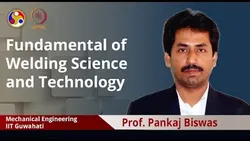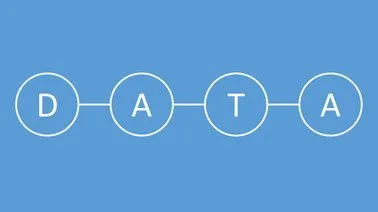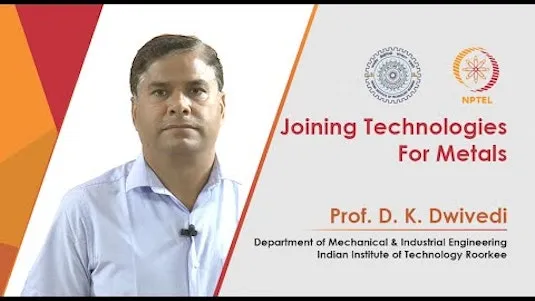
Fundamental of Welding Science and Technology 
This course provides an introduction to the fundamentals of welding science and technology. It covers topics such as classification of welding and joints, oxy-fuel gas welding, shielded metal arc welding, and gas tungsten arc welding. Through online learning and skill training, students will gain a comprehensive understanding of welding science and technology. ▼
ADVERTISEMENT
Course Feature
![]() Cost:
Cost:
Free
![]() Provider:
Provider:
Youtube
![]() Certificate:
Certificate:
Paid Certification
![]() Language:
Language:
English
![]() Start Date:
Start Date:
On-Demand
Course Overview
❗The content presented here is sourced directly from Youtube platform. For comprehensive course details, including enrollment information, simply click on the 'Go to class' link on our website.
Updated in [May 25th, 2023]
Fundamental of Welding Science and Technology is a course designed to provide an introduction to the fundamentals of welding science and technology. The course begins with an introduction to welding, including a discussion of the different types of welding and joints. Subsequent lectures cover topics such as oxy-fuel gas welding, shielded metal arc welding, and gas tungsten arc welding. By the end of the course, students will have a comprehensive understanding of the fundamentals of welding science and technology.
[Applications]
The application of this course can be seen in various industries such as automotive, aerospace, and construction. It can be used to understand the basics of welding and the different types of welding processes. It can also be used to understand the different types of joints and how to properly weld them. Additionally, it can be used to understand the safety precautions and techniques needed when welding. Finally, it can be used to understand the different types of welding materials and how to select the right one for the job.
[Career Paths]
1. Welding Engineer: Welding Engineers are responsible for designing, developing, and testing welding processes and equipment. They also oversee the production of welded components and ensure that the welding process meets safety and quality standards. With the increasing demand for welded components in the automotive, aerospace, and construction industries, the demand for Welding Engineers is expected to grow.
2. Welding Inspector: Welding Inspectors are responsible for inspecting welded components and ensuring that they meet safety and quality standards. They use a variety of tools and techniques to inspect welds and ensure that they are free from defects. With the increasing demand for welded components in the automotive, aerospace, and construction industries, the demand for Welding Inspectors is expected to grow.
3. Welding Technician: Welding Technicians are responsible for setting up and operating welding equipment. They are also responsible for troubleshooting and repairing welding equipment. With the increasing demand for welded components in the automotive, aerospace, and construction industries, the demand for Welding Technicians is expected to grow.
4. Welding Educator: Welding Educators are responsible for teaching welding courses and providing students with the knowledge and skills necessary to become successful welders. With the increasing demand for welded components in the automotive, aerospace, and construction industries, the demand for Welding Educators is expected to grow.
[Education Paths]
1. Bachelor of Science in Welding Engineering: This degree program provides students with a comprehensive understanding of welding engineering principles and practices. Students learn about welding processes, materials, and safety, as well as the design and fabrication of welded structures. This degree is becoming increasingly popular as the demand for skilled welders continues to grow.
2. Master of Science in Welding Engineering: This degree program provides students with advanced knowledge and skills in welding engineering. Students learn about advanced welding processes, materials, and safety, as well as the design and fabrication of welded structures. This degree is becoming increasingly popular as the demand for skilled welders continues to grow.
3. Doctor of Philosophy in Welding Engineering: This degree program provides students with an in-depth understanding of welding engineering principles and practices. Students learn about advanced welding processes, materials, and safety, as well as the design and fabrication of welded structures. This degree is becoming increasingly popular as the demand for skilled welders continues to grow.
4. Certificate in Welding Technology: This certificate program provides students with a basic understanding of welding technology. Students learn about welding processes, materials, and safety, as well as the design and fabrication of welded structures. This certificate is becoming increasingly popular as the demand for skilled welders continues to grow.
Course Provider

Provider Youtube's Stats at AZClass
Discussion and Reviews
0.0 (Based on 0 reviews)
Explore Similar Online Courses

React JS Frontend Web Development for Beginners

Data Structures: An Active Learning Approach

Python for Informatics: Exploring Information

Social Network Analysis

Introduction to Systematic Review and Meta-Analysis

The Analytics Edge

DCO042 - Python For Informatics

Causal Diagrams: Draw Your Assumptions Before Your Conclusions

Whole genome sequencing of bacterial genomes - tools and applications

Welding Safety

Joining Technologies For Metals


Start your review of Fundamental of Welding Science and Technology